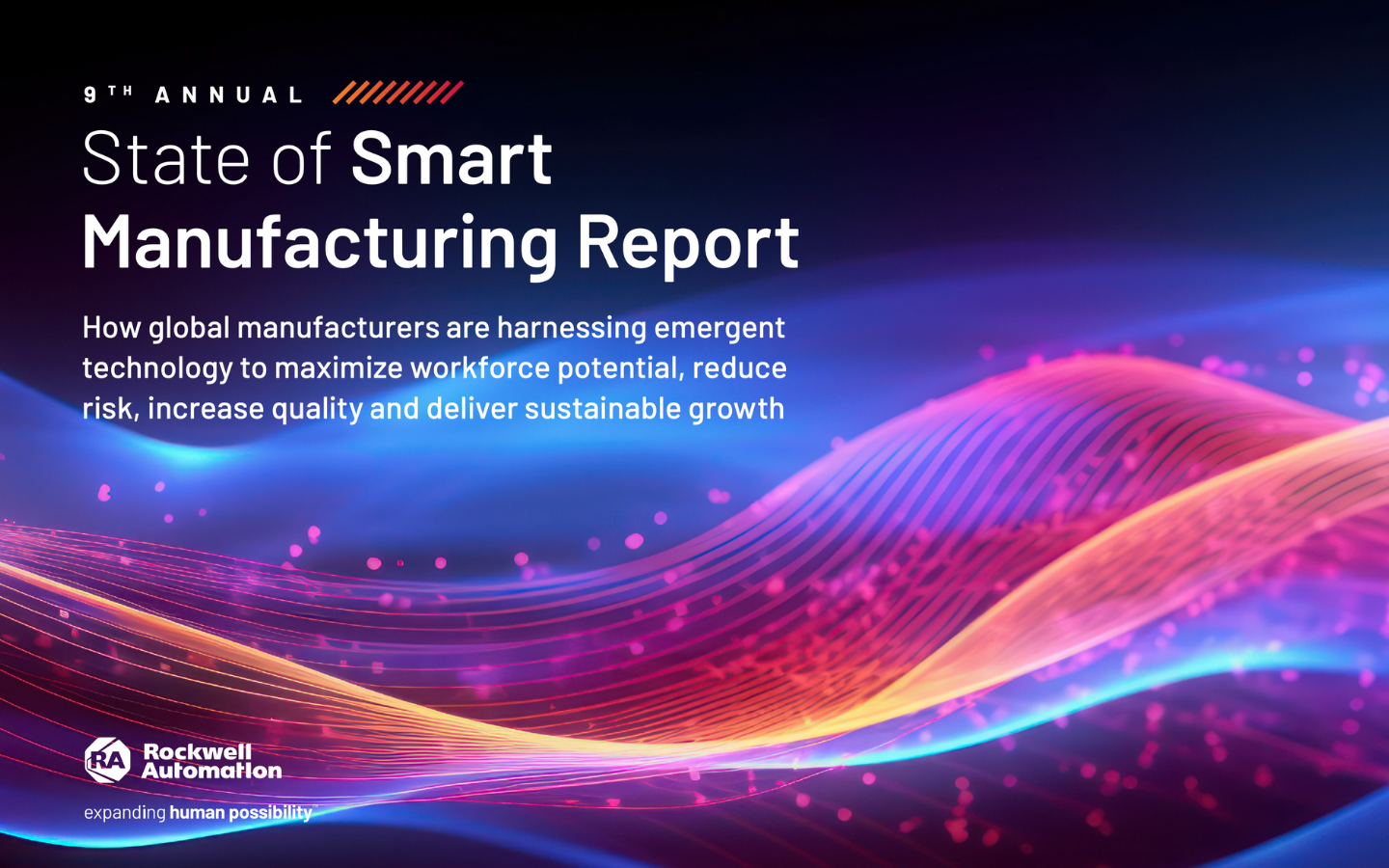As manufacturers navigate inflationary pressures, rising energy costs, and a persistent skills gap, the 9th Annual State of Smart Manufacturing Report illuminates the transformative power of smart manufacturing technologies, such as generative artificial intelligence (GenAI).
A notable shift is evident, with a significant 95% of manufacturers now either using or evaluating smart manufacturing technologies!
Smart Technologies to Tackle Challenges
In the rapidly evolving landscape of global manufacturing, the 9th Annual State of Smart Manufacturing Report by Rockwell Automation presents a forward-looking analysis of how emergent technologies are being deployed to tackle the industry’s most pressing challenges. As manufacturers navigate inflationary pressures, rising energy costs, and a persistent skills gap, the report illuminates the transformative power of smart manufacturing technologies in fostering resilience, enhancing quality, and promoting sustainable growth.
Ninety-Five Percent of Manufacturers Deal With Emergent Tech
A notable shift towards smart manufacturing is evident, with a significant 95% of manufacturers now either using or evaluating such technologies — a testament to the industry’s adaptive response to recent disruptions, including the pandemic and subsequent supply chain shortages.
The Driving Force of Manufacturing Transformation
Central to this transformation is the adoption of generative artificial intelligence (GenAI), which has surged in priority over the last year. GenAI, alongside collaborative robots (cobots), autonomous mobile robots (AMRs), and automated guided vehicles (AGVs), is not just enhancing the workforce but reshaping it, offering solutions to bridge the skills gap and augment human potential.
Cybersecurity as a Pivotal Concern
Cybersecurity emerges as a pivotal concern, paralleling the increased integration of operational technology (OT) and information technology (IT). As digital and physical realms converge, safeguarding these interconnected systems against cyber threats is paramount for maintaining operational integrity and resilience.
A Gap in the Effective Use of Collected Data
The report underscores the critical importance of data management in unlocking the full potential of smart manufacturing. However, it reveals a gap in the effective use of collected data, highlighting an opportunity for manufacturers to leverage this untapped resource to drive decision-making and operational efficiency.
New Strategic Imperative
As the industry looks to the future, the alignment of people, process, and technology emerges as a strategic imperative. The rapid adoption of AI and automation signifies a shift towards more intelligent, flexible, and sustainable manufacturing practices. However, the human element remains central, with a focus on upskilling the workforce and fostering a culture of innovation and adaptability.
